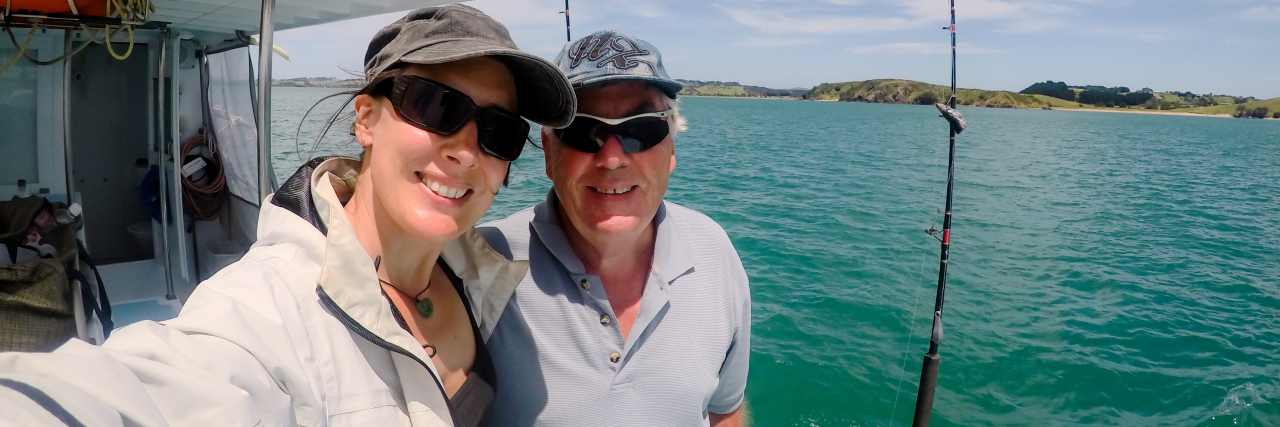Chronic illness is a weird thing. You don’t get it until you get it. The appointments, the medications, the surgeries, the relentless discomfort…it’s one of those things in life that is relatively unrelatable unless you have been there. People can show sympathy, but only fellow people living with illness can really empathize with the dystopian existence that comes with a chronically ill body.
My chronic illness best friend is perhaps an unlikely match. The easiest way to explain it is this: imagine Jessica Day from “New Girl” and Leroy Jethro Gibbs from “NCIS.”
In real life, I go by Tricia. He goes by Dave. I am a 30 year old human resource manager who loves tangerine La Croix and polka dots. Dave is a retired federal agent who enjoys good vodka and fishing. Aside from our mutual love of dogs, we seem like complete opposites.
As a best friends of my parents, Dave and his family have been in my life since I was a child, but in the last several years he has become one of my dearest friends as well. We both have bad bladders and share a kinship over the imposition a worthless urological system has on one’s life. After my first surgery, Dave and I began this tradition where we would send each other gifts as rewards for surviving hospital stays: a pair of dog socks, a stuffed animal red blood cell, a Willow Tree angel, stethoscope shaped cookies…we became experts at “get well” gifts. We even nicknamed ourselves “Bladder Buddies.” It‘s our thing.
Our standard back-and-forth goes something like this:
“How ya doin’ kid?”
I respond with a chipper, “Not bad. How about you?”
He smirks at me with that special-agent-lie-detector glance, lowers his head and says, “How are you really doing?”
I sigh and honestly tell him. He nods the I-know-exactly-what-you-mean nod and tells me how he is doing that day too.
We have this language, these subtleties, that someone who doesn’t live in constant discomfort simply wouldn’t comprehend.
Dave and I are unique, but our story isn’t. I am sure all of us with chronic illness have someone who fills these roles. Whether it be online or in real life, we seek out people who understand our situation. These relationships are nurtured by shared experience, sharpened by unspoken truths, and strengthened through allyship in the same fight. It makes us feel seen and validated, while also provides a caring resource to help us figure out life within illness.
But even so, our actual battles remain uniquely our own; they are won and lost in the confines of our own skin. Not even the best or most loyal buddy can change that.
Dave passed away this summer. Three cancers, multiple infections, and heart complications take their toll on a human body. We are not, after all, infallible.
It is hard to watch the person, your person, fight a similar fight and reach finality. It is hard not to make the comparisons and feel discouraged by the morbidity of it all. It is hard to forge ahead alone.
But while we are still in the land of the living, it is our duty to continue the fight. We will push for research and treatment options. We will advocate for accessible healthcare free of discrimination and bias. We will work within our communities to bring awareness and action.
We will hold the hands of those newly diagnosed and assure them that we get it. We will answer their questions, tell them our stories, and help them feel less isolated. When they say, “I’m having a bad day,” we won’t diminish or dismiss, but nod empathetically knowing exactly what that statement means. We will share our tips and tricks; our life hacks and our favorite self-care routines, hoping to make their life a little easier.
And we will do it all honoring the memories of those who did the same for us.
I love you Dave. And today, I’m doing OK.
Love, Bladder Buddy
Getty Image by corners74

